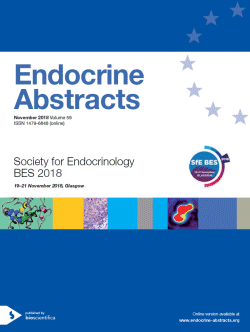Searchable abstracts of presentations at key conferences in endocrinology

Society for Endocrinology BES 2018
Glasgow,
UK
19 Nov 2018 - 21 Nov 2018

The Society for Endocrinology BES will take place 19-21 Nov 2018 in Glasgow. Come and exchange knowledge, share experiences and strengthen collaborations across our global community of endocrinologists.



